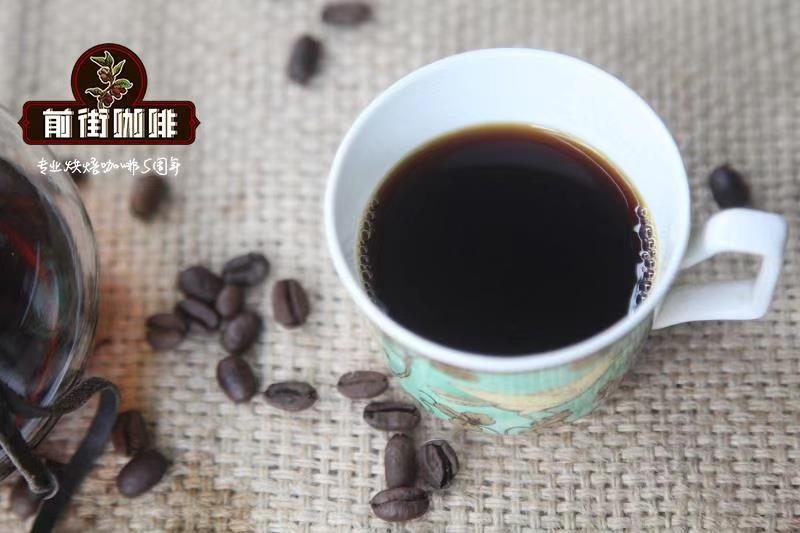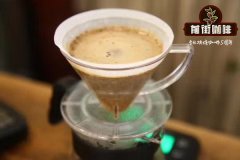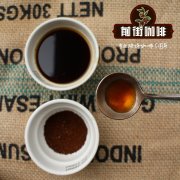There are several factors that affect coffee grind.| How much does grinding affect coffee?

Professional coffee knowledge exchange more coffee bean information please follow the coffee workshop (Wechat official account cafe_style)
Is the coffee powder ground as finely as possible? How to define the thickness of coffee powder? The granules of ground coffee vary from large to small, so the size of these powders has little effect on a cup of coffee.
Before making coffee, we need to grind the beans into fine particles to release the charming aroma and taste of coffee. Therefore, it is particularly important to choose the right degree of coffee grinding and grinding. How should we choose the coffee mill, and how should we set it? To this end, we can judge the grinding of coffee by the following four points.
There are four basic principles of coffee grinding:
The main results are as follows: 1. Select the grinding degree suitable for cooking method. Adjust properly according to the characteristics of the bean grinder and the degree of baking. Generally speaking, the shorter the cooking time, the more the coffee powder must try its best to expand its surface area to come into contact with water, and the finer the particles required; on the contrary, the longer the cooking time, the thicker the grinding particles must be, so as to avoid the extraction of unnecessary impurities.
2. The temperature produced during grinding should be low. No matter what kind of bean grinder is used, it will generate heat by friction during operation, and the speed of volatilization will be accelerated during this heating process, so try to make sure that the temperature produced during grinding is low.
3. The powder particles after grinding should be uniform. The importance of uniform powder has been mentioned before, but the editor will not talk about it here.
4. Grinding must be done at the last minute before brewing. Grinding too early will increase the surface area of coffee in contact with air and humidity and gradually lose its aroma.
When grinding beans, the size of the powder depends on the way it is cooked. Grinding coffee powder with appropriate thickness is very important for making a good cup of coffee, because the extraction of water-soluble substances in coffee powder has its ideal time, if the powder is very fine and cooked for a long time, resulting in over-extraction, the coffee may be very bitter and lose its aroma. On the other hand, if the powder is coarse and cooked too fast, resulting in insufficient extraction, the coffee will be tasteless because it is too late to dissolve the water-soluble substance in the powder.
Three factors determining the degree of coffee grinding
1 utensils or machines used to make coffee
When making coffee, the shorter the time spent using utensils or machines, the finer the coffee powder should be; on the contrary, the longer it takes to make coffee, the thicker the coffee powder should be.
For example, the espresso mechanism takes only 20 to 30 seconds to make a cup of espresso (espresso), which requires very finely ground coffee powder; a French press takes 3 to 4 minutes to make a cup of coffee, so it needs coarse ground coffee powder.
2 the roasting degree of coffee beans
Usually, the degree of grinding of coffee powder is used to control the stability of coffee flavor. The deeper the coffee beans are roasted, the thicker they should be ground; on the contrary, the shallower the coffee beans are roasted, they should be ground finer.
If your usual way of making is hand-made, like coffee that is not very bitter or sour, and hope to drink a more balanced flavor. When you get a bag of moderately roasted coffee beans, you can grind them as thick as sugar, which is moderately ground; if they are medium-roasted beans, you need to grind them a little thicker; similarly, if they are lightly roasted beans, you need to grind them slightly.
3 the flavor of the coffee you want
If you consciously want to use the thickness of the coffee powder to adjust the final flavor of the coffee, there is a general rule: the thicker the coffee powder, the stronger the sour taste; the finer the coffee powder, the more bitter.
For the same type of coffee beans, if you want to get a more mellow cup of coffee, you might as well grind it finer; if you want to drink the tonality of the fruit, you can grind it thicker.
Making delicious and fragrant coffee is an art as well as a science.
The choice of coffee beans, the degree of grinding of coffee powder, and even the use of what kind of water quality is also very particular, this may be the charm of coffee.
Carefully cook a cup of strong coffee, taste it slowly, it must have a different taste.
Finally, the bean grinder should be diligent in maintenance, regularly remove the knife head and remove the grease dirt inside. The knife head is consumable, and it will be dull every 800 to 1000 pounds. Remember to replace it, otherwise the grinding particles will be half-thick and half-thick, which will cause uneven extraction and damage the good flavor of coffee.
END
Important Notice :
前街咖啡 FrontStreet Coffee has moved to new addredd:
FrontStreet Coffee Address: 315,Donghua East Road,GuangZhou
Tel:020 38364473
- Prev

How to distinguish between primary defective beans and secondary defective beans? how to select the baked defective beans?
Professional coffee knowledge exchange more coffee bean information please pay attention to the coffee workshop (Wechat official account cafe_style) 1, major defects / first-level defects (Category 1) first-level defects (Category 1) in the CQI quality coffee raw bean evaluation criteria must not appear. It will seriously and continuously damage the raw bean quality of normal coffee, deteriorate the flavor of coffee, and produce coffee.
- Next

What is the meaning of cappuccino coffee, do you know?| Cappuccino coffee recipe
Professional coffee knowledge exchange More coffee bean information Please pay attention to coffee workshop (Weixin Official Accounts cafe_style) In the early 20th century, Italians developed cappuccino coffee. Over espresso, pour steam-frothed milk. A traditional cappuccino is one-third espresso, one-third steam milk and one-third frothy milk, sprinkled with small drops.
Related
- Beginners will see the "Coffee pull flower" guide!
- What is the difference between ice blog purified milk and ordinary milk coffee?
- Why is the Philippines the largest producer of crops in Liberia?
- For coffee extraction, should the fine powder be retained?
- How does extracted espresso fill pressed powder? How much strength does it take to press the powder?
- How to make jasmine cold extract coffee? Is the jasmine + latte good?
- Will this little toy really make the coffee taste better? How does Lily Drip affect coffee extraction?
- Will the action of slapping the filter cup also affect coffee extraction?
- What's the difference between powder-to-water ratio and powder-to-liquid ratio?
- What is the Ethiopian local species? What does it have to do with Heirloom native species?

